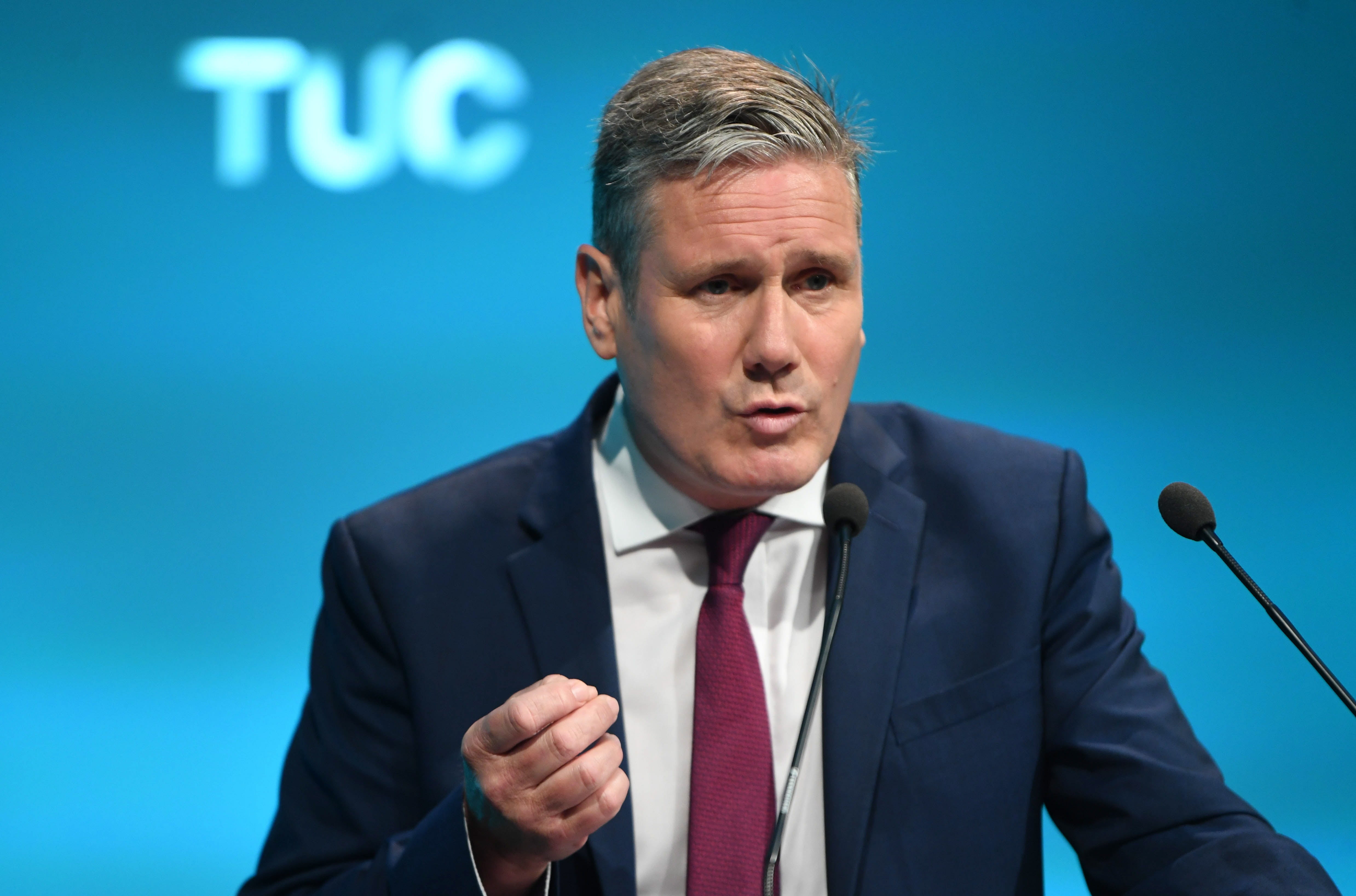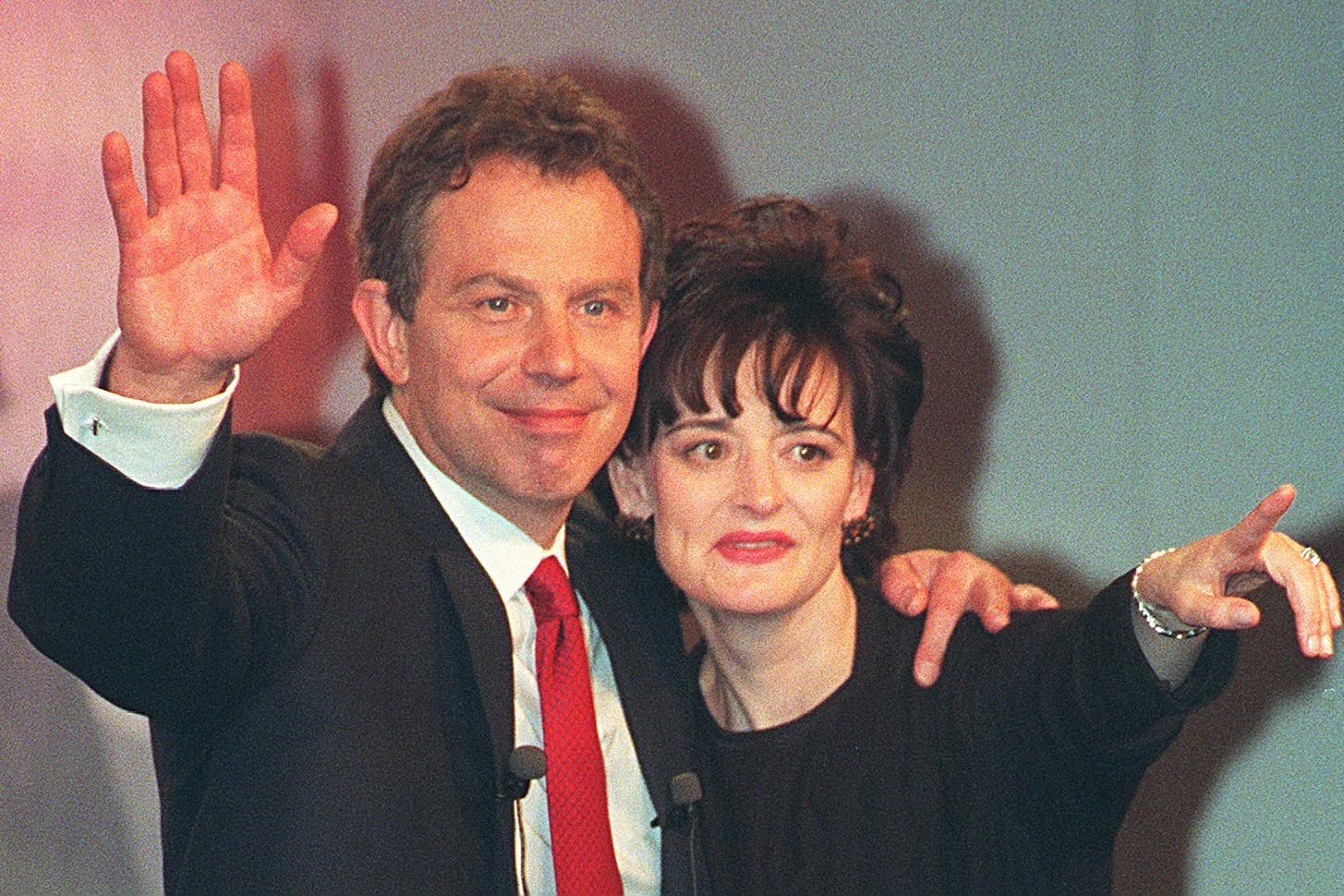Can Labour’s new deal for workers satisfy the unions as well as business?
Keir Starmer must tread a fine path between those who want him to strengthen workers’ rights and others who fear that doing so will affect productivity, writes Sean O’Grady


For a movement literally founded to promote the interests of working people, the Labour Party has found itself troubled by the question of workers’ rights and the power of trade unions to a remarkable degree. Today, as they will doubtless continue to do over the coming months in the run-up to the general election, the party’s leaders in parliament are negotiating with the Labour Trade Union Organisation (LTUO) in an effort to decide what Labour’s next manifesto should say about employment and industrial relations law.
The LTUO is the umbrella body that represents the 11 trade unions that are affiliated with the party and fund much of its activities. It is led by Mick Whelan, the general secretary of the train drivers’ union, Aslef.
What’s the problem?
Put at its crudest, the trades unions (naturally) and the left of the party want to see workers’ rights maximised and the bargaining power of the unions strengthened as far as possible. On the right of the party, and well represented at the top of the shadow cabinet, is an anxiety not to alienate business leaders – and, moreover, to ensure that any reforms do not damage investment, productivity and competitiveness.
Two successive sets of proposals about Labour’s “new deal” for workers have been produced since Keir Starmer became leader, with active input from the unions and the party’s national policy forum (less so the Labour conference).
Within the shadow cabinet, the unions are looking for the backing of Angela Rayner, who, as well as being deputy leader, is a former careworker and a trade unionist – and, as “strategic lead” on the new deal for working people, was responsible for the first set of proposals. On the other side are the shadow chancellor and former Bank of England economist Rachel Reeves.
What’s happening?
A new draft was presented to the LTUO on May Day, symbolically, and has gone down badly. In the words of the leader of the Unite union, Sharon Graham: “It looks like all the warnings Unite made earlier about the dangers of Labour rowing back on its pledges for the new deal for workers have been proved right. This new Labour document on the new deal, issued to the unions on Monday, is a rowback on a rowback. It is totally unrecognisable from the original proposals produced with the unions. Unrecognisable. Workers will see through this and mark this retreat after retreat as a betrayal.”
Are the unions right?
In the sense that policy has evolved markedly from the original “new deal”, yes, they are. The most important general change in attitude is to make everything subject to “consultations” with business. That could further weaken the proposals, and could also delay the introduction of new laws.
Admittedly, the new deal won’t be binding, but the Labour leadership does not wish to see business leaders speak out about the party’s plans having the potential to damage investment and job creation. Reeves and Starmer rightly fear the political capital the Tory party and its allied press would make of, say, an “open letter” to a newspaper signed by 100 CEOs and damning Labour’s policies.
What do the public think?
While far less so than in the more distant past, trade union power is still a concern for some people, who view it as an obstacle to economic change and growth. It is also the case that persistent strikes in the public sector and within the publicly funded NHS have attracted support, but also provoked concerns among those affected and the wider electorate.
In recent months, the Labour leadership has stressed that, alongside the trade unions, business will be consulted about the changes, with the party having promised last week that the relevant legislation would be brought forward within the first 100 days of a Labour administration.

Nowadays, few people blame the unions for Britain’s economic problems, but the Tories and their media allies are keen to talk up the dangers. In his most recent Budget, for example, Jeremy Hunt caricatured the new deal for workers as comprising “70 new burdens on employers” that Labour would impose and destroy jobs and prosperity in the process.
Depending on what the Labour movement agrees, we will hear much more of that in the coming months – though it is difficult to see how the Tories could pass any more draconian restrictions on trades unions and remain in alignment with the UK’s membership of the UN International Labour Organisation and the human right to withdraw one’s labour.
Will Labour make striking easier?
If it does, then not by much. The new deal did promise to scrap (unspecified) “anti-union” legislation, but the most that might realistically be expected is a reversal of the latest laws, which set the threshold for a strike ballot even higher and sought to impose “minimum service guarantees” in the public sector. In the event, neither of these measures has made much difference, and neither the NHS nor the train operators have shown much enthusiasm for trying to force workers to break strikes.
But zero-hours contracts will still be abolished?
Not any more, and for people who don’t hate them and find they suit their lives, this is not necessarily a bad thing.
The ‘right to switch off’?
Depends on what you mean – and any measures are likely to be vague. So the politely insistent emails from your boss at weekends may still turn up. Like other points of difficulty in this field, “switching off”, however it is defined, might be relegated from statute law to a code of practice in Labour’s “new” new deal for workers as it appears in manifesto form.
Workers’ rights on day one?
Some rights, for example those relating to race, disability, or gender discrimination, already exist from the moment of recruitment, but Labour was at one stage talking about a radical extension. Bosses view this one with maximum suspicion. The issue is that it may deter recruitment – giving existing workers overtime and more pay is less risky than taking on a new, untried member of staff.
Is there anything in the new deal that employers like?
Yes, and all employers would welcome, for example, a much clearer legal definition of what constitutes someone on staff being an “employee” versus the more fluid, EU-derived definition of “worker”; what exactly is a “freelance” or “self-employed” person (in tax as well as employment law); and also what is meant by “part time” vs “full time”. Such reforms were actually explored, and shelved, by Theresa May’s administration.

The only losers in such a tidy-up would be employment lawyers. Most bosses would also accept an end to “hire and fire”, a procedure that gained notoriety during the P&O scandal a few years ago – though some protections exist already.
Will Labour’s proposals kill jobs?
To be fair, they haven’t in the past. The Tories in 1997 made dire predictions about what the right to trade union recognition and the new policy of a minimum wage would do to jobs, none of which came true. None of Tony Blair’s modest reforms were reversed by the Cameron administration or its successors. Indeed, the Tories have enjoyed boasting about inventing the “national living wage”. But there may eventually be limits to what sectors such as social care, hospitality and the NHS can cope with if Labour’s “real living wage” is set at levels far behind the market rate.
The Tories are spinning that the rise in local authorities’ social care wage bills would add £225 to council tax bills. So even Rayner’s cherished plan for national pay scales and collective bargaining across the care sector looks set to be amended, and it will almost certainly not be extended across the whole economy. The idea was that all employers in a given industry would have to bargain nationally with unions on behalf of all those working in, say, food processing, or as electricians, or – dread thought – in the media.
That would have been quite revolutionary: such radicalism has now been rendered redundant.
Subscribe to Independent Premium to bookmark this article
Want to bookmark your favourite articles and stories to read or reference later? Start your Independent Premium subscription today.






Join our commenting forum
Join thought-provoking conversations, follow other Independent readers and see their replies
Comments